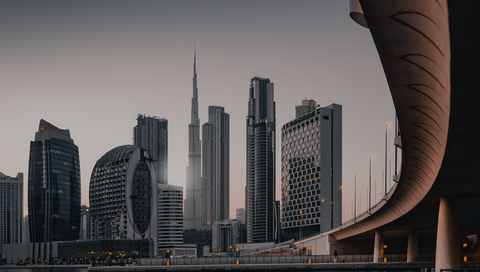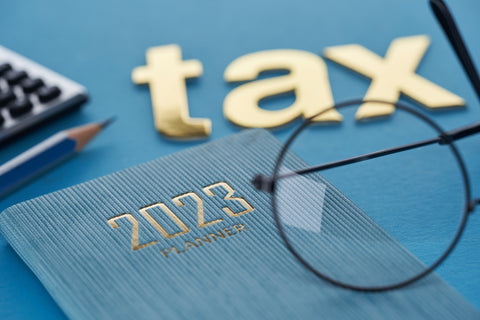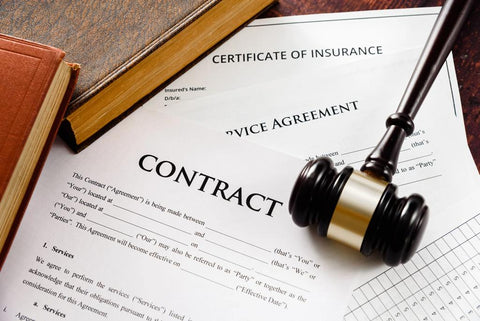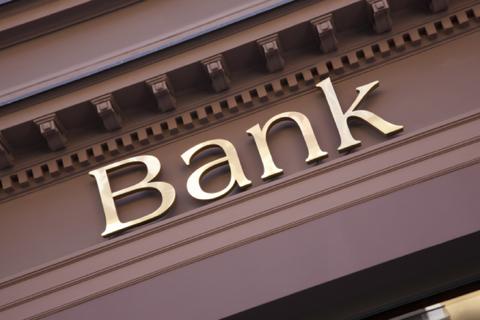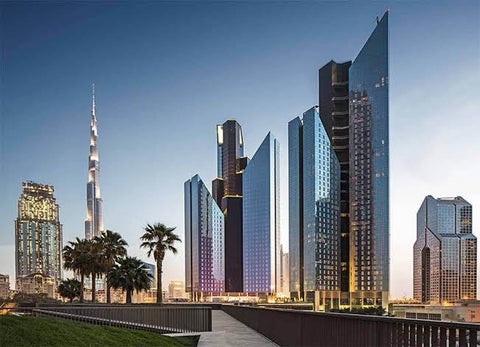P.I.C Middle East, your gateway to a prosperous future in the United Arab Emirates.
Our mission is to be the driving force behind the success of your business. Passionate about your growth and determined to propel you to new heights, we leverage our deep expertise and industry knowledge to become your most valuable asset on the path to sustainable and profitable expansion.
About Us
Born from the association of Doina ONICA, a lawyer at the Paris Bar specialising in international taxation, and Anthony MANGIAPANE, an expert in business strategy and influential communications.
Our team is dedicated to fulfilling your entrepreneurial aspirations in this land of opportunity.
ANTHONY MANGIAPANE
Languages: French / English / Italian
With over a decade's experience and a bold vision, Anthony has set up and run companies in a wide range of sectors, including energy, luxury goods and strategy consulting.
Working with some of France's leading companies, Anthony has developed a rigorous approach and an ability to anticipate, enabling him to provide relevant and visionary solutions to the business world.
Having honed his skills in France, Anthony's appetite for expansion took him across the Atlantic and into the Middle East, where he seized the opportunities of this new global economic powerhouse.
Thanks to his dedication and self-study, Anthony has acquired a wealth of business experience, forging strong links with economic and political decision-makers across the globe.
Today, armed with his expertise, Anthony will use his know-how to support you in your business creation or internationalisation strategies, as well as meeting the challenges of fund-raising.
FAQ
There are several reasons why a company might choose to locate in Dubai:
- Strategic geographical location: Dubai is situated at the crossroads of Europe, Asia and Africa, making it a major trading hub. This gives companies easy access to a diversified international market.
- Modern infrastructure: Dubai has world-class modern infrastructure, such as airports, seaports, motorways and advanced communications networks. This facilitates trade and logistics.
- Advantageous economic policy: There are few restrictions on foreign investment and companies benefit from tax advantages.
- Skilled, multicultural workforce: Dubai attracts professionals from all over the world - more than 200 nationalities live in total harmony. This encourages diversity and innovation in businesses.
- Safety and political stability: Dubai is reputed to be one of the safest cities in the world;
- High quality of life: Dubai offers a high-quality living environment with a pleasant climate, sports facilities, shopping malls, restaurants and entertainment venues.
There are three types of legal form in the United Arab Emirates:
- Mainland Type Company or LLC, to carry on all types of business within the UAE.
- Freezone Company - Free zone companies restricted to certain types of business.
- Offshore company allowing trade with the whole world, outside the United Arab Emirates.
Depending on the type of company and the location, there may be a minimum share capital requirement.
Free trade zones are economic zones where trade can be conducted at preferential tax and customs rates. Free zones were originally created to stimulate international trade in the region by offering advantages such as 100% foreign ownership.
The UAE is made up of seven emirates: Dubai, Abu Dhabi, Sharjah, Fujairah, Ajman, Umm Al Quwain and Ras Al Khaimah, with each emirate having its own free zones. There are more than 50 free zones in the United Arab Emirates, some of which offer generic activities for all industries, while others are sector-specific.
Dubai abrite plusieures zones franches où les entreprises peuvent bénéficier de divers avantages, tels que des exonérations fiscales, une réglementation assouplie et des infrastructures de classe mondiale. Voici quelques-unes des zones franches les plus populaires à Dubai :
- Dubai International Financial Centre (DIFC) : cette zone se concentre sur les services financiers, les banques, l’assurance et les sociétés de conseil financier.
- Jebel Ali Free Zone (JAFZA) : l’une des zones franches les plus anciennes et les plus grandes à Dubai qui accueille une grande variété d’entreprises, notamment dans les domaines de la logistique, du commerce, de la fabrication et de la distribution.
- Dubai Multi Commodities Centre (DMCC) : axé sur les secteurs des matières premières, du commerce international et de la finance, DMCC est une zone franche populaire pour les sociétés de négoce.
- Dubai internet city (DMC): principalement axée sur le secteur des médias et du divertissement, elle abrite de nombreuses sociétés spécialisées dans la production, la diffusion, la publicité et le marketing.
- Dubai healthcare city (DHCC) : dédiée au secteur de la santé et des soins médicaux, cette zone franche accueille des cliniques, des hôpitaux, des centres de recherche et d’autres entreprises liées à la santé.
- Dubai south : une zone franche rattachée à l’aéroport international d’Al Maktoum, elle offre des avantages aux entreprises opérant dans la logistique, l’aviation, le commerce et l’e-commerce.
Notre équipe vous accompagnera dans la création de votre entreprise en sélectionnant la zone franche la plus adaptée en terme d’activité, de prix et des avantages offerts.
Le mainland est la zone située à l’extérieur des zones franches. Le département du développement économique (DED) est l’autorité réglementaire chargée de la délivrance des licences continentales. Les entreprises du mainland sont autorisées à exercer leurs activités sans restrictions dans l’ensemble des Émirats arabes unis et à l’échelle internationale.
Il s’agit d’un statut juridique qui est particulièrement adapté :
- aux commerces de proximité
- aux professions libérales
- aux restaurateurs
- aux sociétés de distributions, logistiques et transports.
Auparavant, un sponsor local était requis pour détenir 51% du capital de ces sociétés. Aujourd’hui, pour la majorité des activités commerciales et industrielles, cela n’est plus nécessaire.
An offshore company is a legal structure used primarily for financial, legal or tax purposes. They are set up for reasons of confidentiality, tax savings, asset protection, ease of management and access to international markets.
Offshore companies are generally not permitted to carry on business in the UAE unless they have the appropriate licence.
Our tax specialists can help you understand the legal and tax implications of setting up an offshore company in Dubai.
The choice between a Mainland company or a free zone depends on a number of factors, including your specific business needs, your growth objectives, your core activities, your preferences for controlling ownership, and your budget. Here are some points to consider in making an informed decision:
- Rules and regulations;
- Access to the local market;
- Tax advantages;
- Freedom of choice of location;
- Need for local labour;
- Costs.
Our team of experts can help you choose the most appropriate structure for your business and find a tailor-made solution.
Yes, it is possible to set up a subsidiary or branch in Dubai. Dubai offers a business-friendly environment and encourages foreign investment.
Our team can help you understand the specific legal requirements, conditions and procedures and ensure the successful establishment of your subsidiary or branch.
The UAE is an open economy that seeks to attract a high level of foreign investment, particularly in non-oil sectors, in order to further reduce its dependence on oil. Generous privileges and guarantees, including full foreign ownership, are granted to investors in the free zones, where the business and legal environment is constantly being improved.
However, there are some specific restrictions and regulations to bear in mind:
- Restricted sectors: oil exploitation activities, pharmaceutical services, media and press, fishing sector, etc.
- Commercial licence: to carry out commercial activities in Dubai, it is necessary to obtain a commercial licence from the relevant authorities.
- Minimum investment: for certain types of investment, a minimum amount may be required.
- Local partnership: in some cases, it may be necessary to establish a partnership with a local sponsor or agent in order to operate in the country.
Anyone wishing to live and work in the United Arab Emirates needs a residence visa. Setting up a free zone company may enable you to obtain a residence visa. Investing in a freehold residential (not commercial) property may also qualify you for a resident visa.
However, you can be a shareholder in a company with its registered office in Dubai without needing a residence visa. You also do not need a residence visa to incorporate an offshore company, as these do not authorise the holder to do business in the United Arab Emirates.
How long does a UAE resident visa last?
- Employment residence visa: this visa is issued to expatriates employed by a company in Dubai. The initial duration of the residence visa is often one or two years, but this may vary depending on the employer and the employment contract.
- Residence visa for investment: the duration of the residence visa may be several years, depending on the investment made and the specific conditions set by the authorities. In principle, they last between one and two years.
Before October 2022, employee and investment visas could be for 3 years, but this has now been reduced to one or two years.
- Family residence visa: the duration of this visa is generally linked to the duration of the principal individual's residence visa.
- Long-term residence visa: this is the Golden Visa and is intended for pensioners, foreign investors and certain highly qualified professionals. The duration of this visa is 10 years, with options for renewal.
As an employee in the United Arab Emirates, you can obtain residence visas for your family. They will receive a visa for the same duration as yours.
We can help you with this process, both by preparing the necessary documents and by assisting you at every stage.
Incorporation can take as little as five working days or as long as six weeks for some free zone entities. The initial step is to register the business name. Once this stage has been completed, all the documents required for this type of company and the authority responsible for issuing licences must be gathered together.
There are several general steps involved in obtaining a residence visa for Dubai. In principle, you must sign an employment contract or open a business. After submitting your visa application, you must undergo a medical examination.
Once you have received the residence visa, you must register with the relevant authorities, such as the GDRFA or the free zone, to obtain the residence card.
Our team is here to help you obtain a residence visa as quickly as possible, complete all the administrative paperwork in accordance with the rules in force and avoid any additional expense.
Professional licences must be renewed annually to avoid incurring penalties or losing the residence visa.
Yes, this is a mandatory requirement for opening a bank account in the United Arab Emirates.
Although we cannot guarantee the opening of a bank account, we can confirm that we have never been refused this service.
In Dubai there is no personal income tax for residents. This means that you are not subject to income tax on your personal income, whether generated locally or abroad.
However, when you have income from abroad you may still be taxed in the country of source of the income, depending on the type of income and the type of activity.
Support by our tax experts will help you understand your tax situation and give you valuable advice tailored to your personal situation.
All businesses with an annual turnover in excess of AED 375,000 must register for VAT. However, businesses with an annual turnover between AED 187,500 and AED 375,000 may choose to register voluntarily.
It is important to note that the steps and requirements may vary depending on the nature of your business. Our team can guide you through the process and provide you with accurate and up-to-date advice on VAT registration in Dubai.
- Corporation tax: Since 1 June 2023, mainland companies have been taxed at a rate of 9% on income in excess of AED 375,000. Multinational companies falling under pillar 2 of the BEPS 2.0 framework are subject to different rates based on OECD rules (consolidated worldwide income exceeding AED 3.15 billion).
So, if your company is required to pay tax in Dubai under corporate income tax regulations, it would pay 0% on the first AED 375,000 of profits and 9% on profits above that amount.
For example, a company making a profit of AED 735,000 would have an effective tax rate of less than 4.5%.
- VAT: since 1 January 2018, the UAE has implemented a 5% VAT rate. This applies to most goods and services unless explicitly exempted.
- Import taxes: customs duties on certain goods apply, the rate of which may vary depending on the estimated value of the good;
- Municipal taxes: Dubai imposes municipal taxes on certain transactions and services at local level. For example, there is a rental tax (Tawtheeq) which applies to residential or commercial property rentals and is calculated according to the value of the property but generally amounts to 5%.
There are no special provisions for capital gains. They are taxed according to the same rules as ordinary income.
The tax year is the Gregorian calendar year; taxpayers may only use a different accounting period with the approval of the tax authorities of the emirate concerned.
In France, the concept of tax consolidation allows the results of group members to be consolidated and the losses of a subsidiary to be used to offset the profits of the head company.
In the United Arab Emirates, there is the concept of a "tax group".
Where a parent company holds at least 95% of a subsidiary's shares and voting rights, they may elect to be treated as a single entity for corporation tax purposes. Intra-group transactions must therefore be neutralised.
Note that the tax group cannot include a company established in a free zone.
The United Arab Emirates is part of the GCC customs union and applies a common tariff of 5% on imports from outside the GCC zone (subject to free trade agreements). However, Dubai Customs has issued a notice increasing customs duties to 10% on rebar and steel coils classified under headings 72.13 and 72.14 of the GCC Unified Customs Tariff. The increased rate is applicable from 17 January 2019.
Dubai Customs Notice 15/2021 on Customs Procedures and Regulation of the Movement of Goods through Cross-Border E-Commerce Channels, which had been delayed, will come into force on 1 January 2023.
From 1 February 2023, the Ministry of Foreign Affairs and International Cooperation will charge a fixed service fee of AED 150 for the certification of each commercial invoice of imported goods with a value of AED 10,000 or more for the purpose of import declaration or import for re-export.
For a freelancer in Dubai, the most suitable type of company will depend on the nature of your business and your specific needs. Here are some common options for freelancers in Dubai:
- Freelancing as an independent provider: a freelancer may decide to work without creating a separate legal entity. In this situation they invoice clients using their personal name.
- Free Zone Company: free zones in Dubai offer a favourable business environment for freelancers. This will enable them to obtain a work visa, enjoy benefits such as exemption from tax and withholding tax, and have a dedicated business address.
Pour être considéré comme résident fiscal à Dubai, vous devez remplir certains critères, dont la durée de séjour. En principe, il convient de résider généralement 183 jours au cours de l’année fiscale pour être considéré comme résident fiscal.
Cependant, certains revenus peuvent demeurer imposable dans votre état de provenance en fonction du type de revenu (par exemple revenus immobiliers, biens obtenus lors d’une succession). Il convient de réaliser une étude au cas par cas en prenant en compte les règles locales de chaque pays et l’interprétation des conventions internationales pour éviter une double imposition.
Notre équipe d’experts en fiscalité peuvent vous accompagner et vous donner des conseils précis et à jour sur votre situation personnelle.
From a tax point of view, transferring one's domicile abroad is not a trivial operation. On the contrary, it requires careful preparation, particularly when the assets of the taxpayer transferring his domicile are substantial.
Such a move may give rise to a number of tax obligations, mainly in terms of income tax, exit tax and wealth tax.
Furthermore, for the years following the transfer of domicile, the taxpayer concerned is not necessarily relieved of all tax obligations in his country of residence. This is the case, for example, if the taxpayer retains income-generating (or non-income-generating) property assets in France.
First and foremost, taxpayers leaving France must announce their transfer of residence and notify their address abroad to the tax centre where they were registered before leaving, and comply with other reporting obligations.
These obligations vary from country to country. Our team is here to guide you and ensure that your move complies with all the laws and regulations in force in your respective countries.
To set up a company in Dubai, you will need to provide the following documents:
- Your identification documents and those of the other shareholders or partners in your company.
- Business licence application.
- Company agreement: you will need to draw up a Memorandum of Association.
- Proof of share capital: you will need to deposit a minimum share capital with a bank in the UAE and provide proof of this deposit; note that the deposit of capital is not always required.
- Certified translations: if your documents are in a language other than English or Arabic, you will need to have them translated into Arabic by an official translator and have them certified;
- Business plan or feasibility study: you may be asked to submit a business plan or feasibility study detailing your company's prospects, objectives, marketing strategies and financial forecasts.
- Tenancy agreements: if you plan to have an office or commercial space in Dubai, you will need to provide tenancy agreements or proof of a tenancy agreement for your commercial premises.
It is important to note that documentation requirements may vary depending on the type of business and specific regulations.
Our team can help you put together the documentation you need to set up your business smoothly and quickly.
Dubai offers a number of specific advantages for start-ups, making it an ecosystem conducive to entrepreneurship. Here are just a few examples:
- Advanced infrastructure: Dubai is equipped with world-class infrastructure, including special business free zones, technology parks, incubators and coworking spaces.
- Favourable regulatory framework: the Dubai government has introduced flexible regulations to encourage entrepreneurship and facilitate the creation and development of start-ups.
- Access to capital: Dubai has a strong network of venture capitalists and private investors who support start-ups and innovative projects. There are also government initiatives such as the Dubai Development Fund and the Dubai Future Foundation that provide funding opportunities for start-ups.
Dubai offers a wide range of opportunities in various sectors. Various support programmes are in place to foster a favourable environment for start-ups. Here are just a few examples:
- International trade;
- Tourism and hospitality
- Information and communication technologies;
- Renewable energies;
- Health and care;
- Finance and professional services;
- Education;
One of the strengths of our firm is our expertise and solutions tailored to individual needs. Our team strives to offer you all the possibilities in terms of setting up a company and expanding your business in Dubai.
As an expatriate, you can buy a property in Dubai, but there are several steps to consider. You need to find a property that suits your personal circumstances and obtain a mortgage. There are also administrative formalities to complete, such as signing the sales contract, transferring ownership and registering with the relevant authorities.
Please note that real estate rules and regulations in Dubai can vary and it is essential that you are accompanied to ensure that you make the purchase in full compliance with the laws and regulations in force.
Our team of property experts, financial advisers and legal advisers can work with you to ensure a safe purchase under the best market conditions.
Yes, it is possible to obtain a mortgage for the purchase of a property in Dubai whether you are a resident or a non-resident. Eligibility requirements may vary from one bank to another. In principle, the main eligibility criteria for obtaining a home loan in Dubai are :
- Ability to repay: you will need to demonstrate your ability to repay the loan by providing evidence of a stable and sustainable income.
- Initial deposit: banks may require an initial deposit of between 20% and 35% of the purchase price of the property.
- Appraisal of the property: the bank will also appraise the property you wish to purchase to determine its value and condition.
P.I.C has partnered with the most reputable real estate agents and financial advisors in Dubai to assist you in choosing a profitable investment and in the process of obtaining your investment loan.
In Dubai you need to obtain a licence to legally carry out many business activities. Licences are issued by Dubai's Department of Economic Development (DED). Here are some of the main business sectors that require a licence in Dubai:
- Retail;
- Restaurants and hotels;
- Professional services;
- Medical Services;
- Construction and real estate;
- Transport and logistics;
- Education and training.
Please note that this list is not exhaustive and there are many other business sectors that require a licence in Dubai. Our team can assist you and provide detailed advice on the appropriate licence for your specific business.
In principle, there are no specific restrictions on opening a bank account in Dubai for Russian nationals. However, in practice there may be some difficulties for Russian citizens wishing to open a bank account in Dubai. Some banks may require additional documentation, such as extensive verification of the source of funds or documentation of the source of income. Some banks may also apply minimum deposit or specific investment connection requirements for Russian nationals.
Our team of experts can help you put together your application and find the right banks to avoid any difficulties.
No, there are no particular restrictions for Russian citizens wishing to settle in Dubai.
Dubai is home to many international schools offering high quality education based on different international educational programmes such as the International Baccalaureate Programme (IB), the British system (GCSE/A-Levels), the American system (AP/IB) and others.
There are French, American, British, Russian and other schools.
The Dubai government has taken a pro-blockchain and cryptocurrency approach, and there are specific regulations in place to oversee these activities. Investors can buy and trade cryptocurrencies on exchange platforms and licensed online brokers in Dubai.
Regulatory authorities and financial bodies in Dubai have also put in place measures to combat money laundering and prevent illicit activities related to cryptocurrencies. It is therefore advisable to ensure that you comply with current regulations and choose reputable and regulated platforms and brokers.
P.I.C can help you secure your investment.
A company wishing to operate in the cryptocurrency field must obtain a specific licence.
For setting up a business, as of February 2021, Dubai does not officially allow the use of cryptocurrency to set up a business in a free zone in the emirate.
However, UAE citizens can accept and issue cryptocurrency payments freely. Many businesses and restaurants accept cryptocurrency payments. Dubai has a clear vision to become a leading centre for blockchain technology and blockchain-related businesses. It is possible that in the future, specific regulations and laws will be put in place to facilitate the use of cryptocurrency in setting up and running businesses.
Our legal team will be able to guide you in setting up your business and provide you with necessary information regarding the latest laws governing cryptocurrencies in Dubai.
To rent a flat as an expatriate in Dubai, you will need a valid residence or work visa. Specific requirements may vary depending on your nationality, profession and current regulations.
Our team of experts will be able to guide you and provide you with information about immigration laws and the visa process.
Our approach is multi-faceted and above all entrepreneurial.
We want to make sure your business idea is the best it can be.
We assess your business opportunities and provide relevance and feasibility studies, to make sure you have the right profile for your new venture.
We work with market research data to improve your business plan.
We write the business plan for our clients. We help you incorporate your new business in the UAE and guide you through all the administrative procedures.
We work with you on branding and marketing to ensure your product and services are relevant to your target customers.
We are committed, reliable, passionate and understand your needs, as we ourselves "walked in your footsteps" when we applied for and obtained our own visa.
After an initial free consultation, you will receive a proposal of services and corresponding prices. Depending on the services required, you may be paid an hourly rate or a fixed fee.
Nos Adresses
EUROPE
10 Rue de Copenhague
75008 Paris
France
ÉMIRATS ARABES UNIS
B4-210B5
Business Center 04
RAKEZ Business Zone-FZ
RAK
United Arab Emirates

